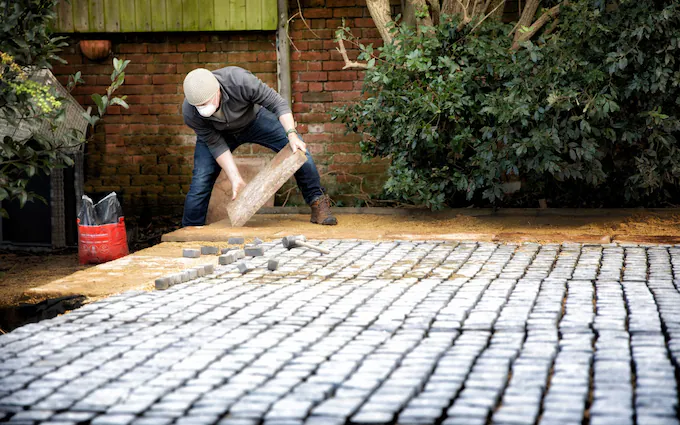A report to the mayor has recommended that Londoners who concrete over their gardens should be charged for doing so and given incentives to remove paving.
The report on the impact of the climate crisis has found that the city also needs a new reservoir, improved flood defences, and a “heat plan” to protect vulnerable residents from the increased risk of heatwaves.
At least four in 10 properties in London are expected to be affected by subsidence by the end of this decade, as soil dries out in the expected higher temperatures, and heatwaves are likely to claim thousands more lives if action is not taken.
Surface flooding is also a threat for which London is not sufficiently prepared, the report warns, recommending the creation of a strategic surface water authority. This is partly down to the amount of land that has been concreted over or paved, meaning the ground is less able to soak up water in heavy rainfall.
Emma Howard Boyd, who is the chair of the review, said the recommendation to ask people to pay stormwater charges when they concrete over their gardens was about “encouraging people to do the right things for the environment”, rather than penalising them.
“We looked at what has worked in other parts of the world,” she said. “We have concreted over too many areas – we need to stop creating a city where we have so much hard surface when what we need are spongier ways of absorbing water.”
Where utilities dig holes in roads and pavements, there could also be scope for leaving “rain gardens” in their place, Howard Boyd added. These are small areas by the side of roads or footpaths where vegetation is planted, which can help absorb the runoff after heavy rain. “There are hundreds of thousands of holes being dug by service providers, which could be mapped and coordinated, and in the appropriate places you could have rain gardens that absorb water,” she said.
Read also: Firefighters put out wildfire that threatened 200 homes on Hawaiian island of Kauai
The report, called the London Climate Resilience Review, was commissioned by the mayor, Sadiq Khan, and makes 50 recommendations, ranging from maintaining street trees to building a new Thames barrier by 2070 and planning for ways to put out fires without water.
Howard Boyd wrote in the foreword that Khan’s re-election in May, after a campaign in which his championing of low emission zones was a key battleground, showed there was a mandate for local authorities to pursue strong policies on the climate.
“The mayor of London won a record third election victory after doubling down on health and climate policies,” she wrote. “As Londoners increased the mayor’s share of the vote, the message for other leaders around the world is: stick with bold action on pollution and climate change.”
She said the new government must look not just at the costs of increasing London’s resilience to extreme weather, but also at the costs of inaction – the “compared to what” scenario. If measures are not taken to prepare London, then the capital’s – and the nation’s – productivity will take a hit, the report found.
London is losing about £577m a year from the effects of heat, the report found. Transport for London lost £8.4m in revenue in the week of the July 2022 heatwave. About 2% to 3% of London’s GDP is likely to be lost a year by the 2050s without adaptation.
Story was adapted from the Guardian.
